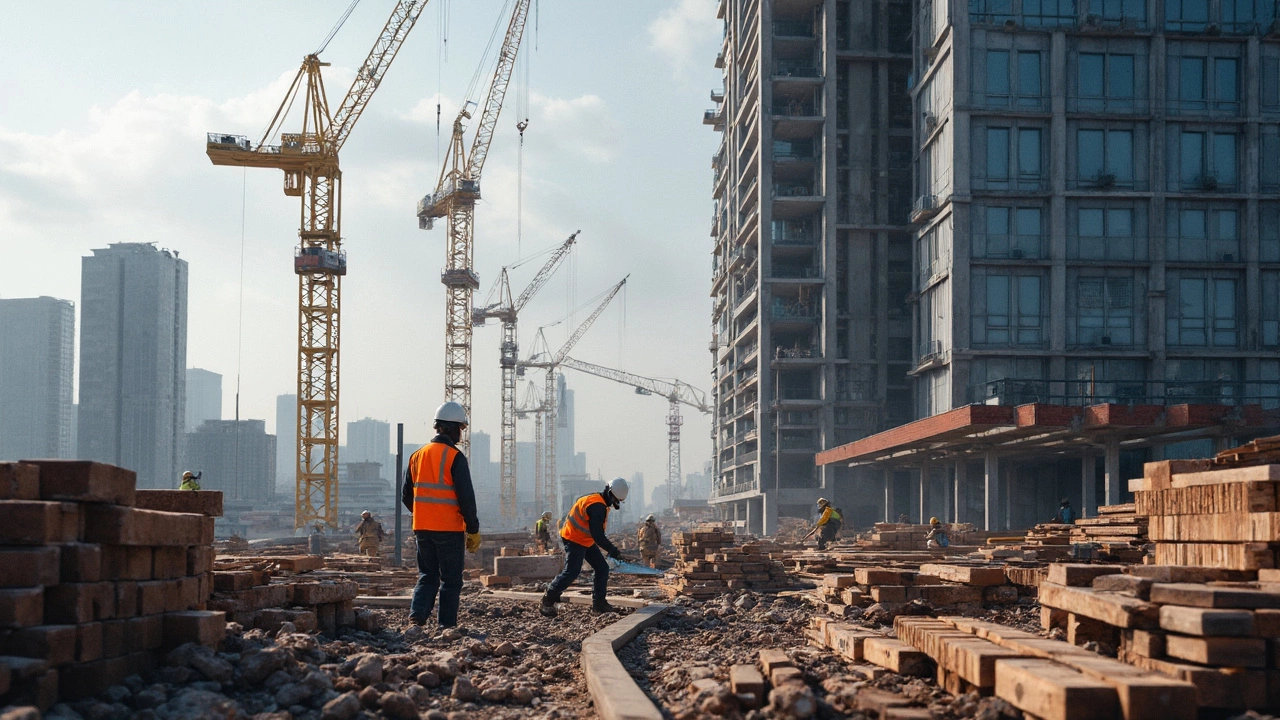Building Supplies: What You Need to Know for a Strong Project
When you start any construction job, the first thing that decides success is the quality of the supplies you use. From the concrete mix that forms your slab to the stone that trims your walls, every item plays a part in durability, cost, and finish. In this guide we’ll break down the basics, show you how to choose wisely, and explain why buying from a local quarry can save you time and money.
Choosing the Right Materials
Start by matching the material to the job. A basement wall needs a mix with high compressive strength, while interior partitions can get away with lighter blocks. Look at the manufacturer’s specs, but also ask for real‑world performance stories. If a supplier can point to a recent build that used the same product, you’ll get a clearer picture of how it behaves on site.
Don’t forget the hidden costs. A cheap‑priced stone may require extra sealing, or a low‑grade cement might need more frequent repairs. Add the labor and maintenance estimates to your spreadsheet before you sign a purchase order. That way the price you see on the invoice reflects the true lifetime cost.
Another tip: order a small sample batch first. A handful of bricks or a few tonnes of limestone let you test fit, color, and how the material reacts to your local climate. It’s a quick, low‑risk way to avoid a massive order that later looks out of place.
Why Local Quarry Supplies Matter
Buying stone or aggregate from a nearby quarry, like Lime Hillock in the UK, cuts transport costs dramatically. Shorter hauls also mean lower carbon emissions, which many clients now ask about when they award contracts. Plus, local suppliers usually know the ground conditions in your area and can recommend the best mix for your soil type.
Lime Hillock specializes in limestone that’s perfect for foundations, road base, and decorative trim. Limestone’s natural porosity helps with drainage, reducing the risk of water buildup under a slab. When you source it locally, you get fresh, dry material that’s ready to use, not sitting in a warehouse for months and absorbing moisture.
Another advantage is that local quarries can often provide custom cuts on demand. Need a 2‑meter block for a load‑bearing wall? They can cut it to size the same day, trimming waste and speeding up installation. This flexibility is harder to get from distant suppliers who ship standard sizes only.
Finally, working with a local provider builds a relationship you can rely on for future projects. When you need a quick top‑up of sand or a rush order of aggregate, the supplier knows your history and can prioritize your job. That kind of service level is priceless on a tight construction schedule.
In short, the right building supplies start with a clear understanding of your project’s needs, a realistic look at total cost, and a preference for local, proven materials. By following these steps you’ll avoid costly surprises, keep your timeline on track, and end up with a structure that holds up for years. Ready to start? Talk to a local quarry today and ask for a sample batch – the simplest step that can make a huge difference.
Essential Construction Materials: What's in the Mix?

The construction world relies on an array of raw materials to build homes, skyscrapers, and bridges. Understanding the basic materials like concrete, steel, wood, and bricks is crucial for anyone involved in construction. These foundational elements shape the strength and design of structures. Knowing their unique properties and uses can significantly impact building choices and sustainability. Dive into an overview of each material's role in construction and how they're transformed into the structures we see every day.
read more



